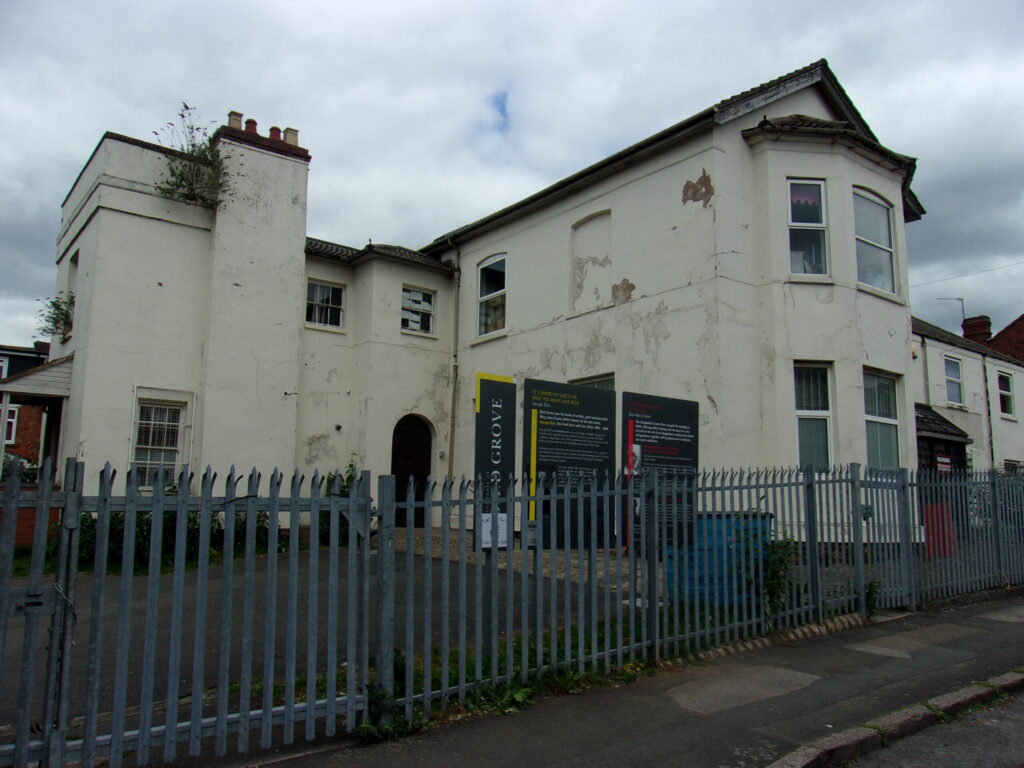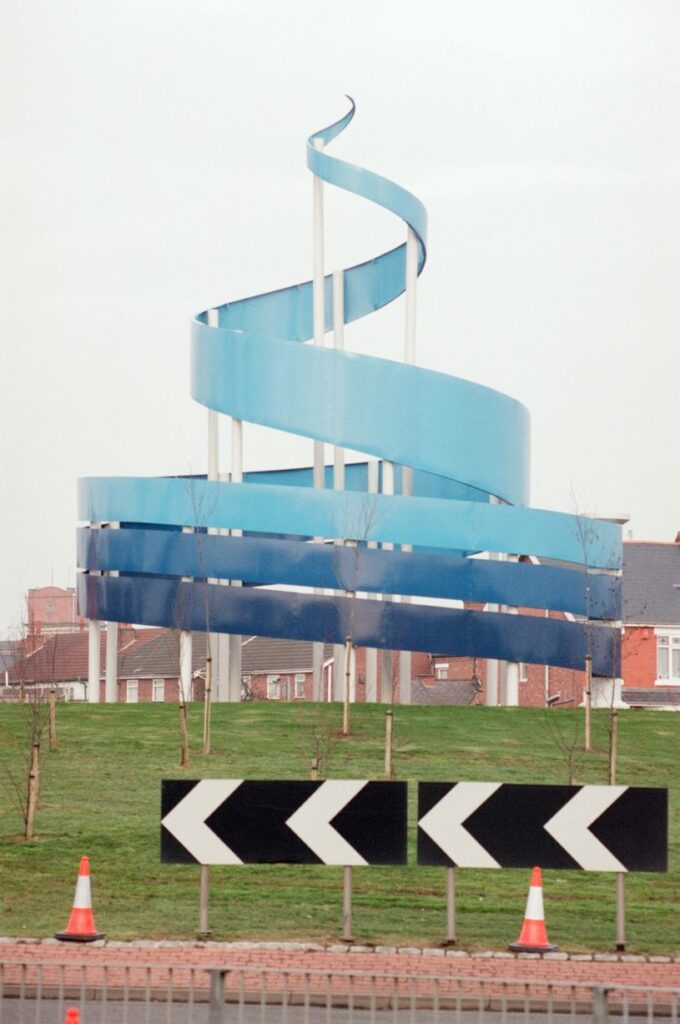
Today we have the sixteenth episode of Peter Walter’s series of lockdown walks “being a compendium of idle facts, hidden places and meaningless historiana gathered on walks within easy striding distance of the writer’s abode – and beyond”.
Unruly foliage sprouts from the window sill of an upstairs bedroom where young Mary Anne Evans might once have gazed out over the garden to the dusty country road beyond the gate.
Quiet and contemplative are not the words you’d use today of Bird Grove, home to the woman who would be George Eliot. A day care centre for the elderly fills that garden now and the old house, shabby and forlorn behind its jagged security fencing, is firmly hemmed in on both sides by terraced streets.

On 10 September 1906, more than fifty years after Mary Anne had departed for London and fame, Edgar O’Brien proudly laid the foundation stone of his Challenge cycle works on the far side of that old country road. By then, anything remotely pastoral about the Foleshill Road had vanished too.
The previous year, just over the canal bridge that had separated the old parish of Foleshill from Coventry, Courtaulds began building the factories that would make their name a legend in the circles where artificial fibre really counted. The giant brick chimney they later erected to service these works, the tallest in England when it was built in the 1920s, is now a mere stump, visible from the main road. But the most imposing of the Courtaulds buildings have survived almost intact, and a handsome group they are too.

Even the recently derelict office block now has a new name, The Silk Works, and a new purpose. It’s to become apartments, a future also being lined up for Edgar’s Challenge works, and, it appears, the default solution for any reasonable-sized building found lying about doing nothing in the Coventry of the 2020s.
Further on, in the bustling heart of modern Foleshill, where the Foleshill Road crosses Station Street East and West, life beats to a different pulse these days.
East and west doesn’t quite cover it any more. The Indian drapers stores, the sweet centres and the pavement emporiums full of okra and chillies and a hundred other ingredients for south Asian cooking seem almost old hat now. New communities flag their presence in business names like Café Kurdistan and the Babylon food market and in just a few hundred yards the browsing foodie can eat Polish and Sri Lankan and Tamil and Romanian.
On a distant roundabout, roughly where long ago Great Heath ended and Little Heath began, stands an attempt to summon up that ancient past among this twenty-first century melting pot of cultures. It’s a blue metal spiral, meant to memorialise the ribbon weavers who were the earliest ‘folks on the hill,’ giving Foleshill its name. But it’s clunky and dull and ribbon weaving was never that.

Nearby stands the former Heath Hotel, now calling itself the Wonder Years Nursery and Holiday Club. It was here, in 1977, that 2-Tone founders The Specials played their first ever gig as The Automatics. Foleshill’s seen them all.
